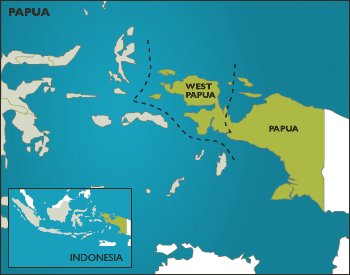Down to Earth No. 47, November 2000
Mining companies are lobbying to change legislation which prohibits open-pit mining in areas designated as protected forests.
"Forest lands can only be used for development needs other than forestry in Protection and Production Forest areas . . . No open-pit mining is permissible within Protection Forest areas."
(Article 38, Forestry Law 41, 1999)
Indonesia's new forestry law, passed last year, prohibits open-pit mining in forests classified as 'protected forests'.

